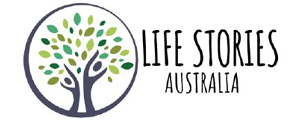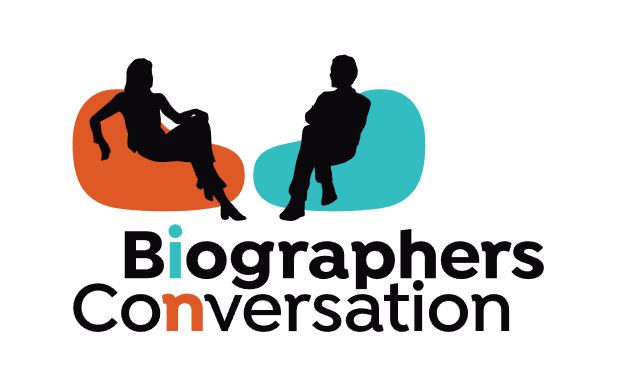When you read a biography, do you feel like you’re in the story living the biographical subject’s life, feeling what they’re feeling and seeing what they’re seeing? To stimulate your imagination this way, biographers make hundreds of decisions. It’s these choices the biographer and LSA member, Gabriella Kelly-Davies, explores in her new podcast, Biographers in Conversation.
Each week, Gabriella chats with leading biographers worldwide about the multiplicity of choices they make while researching, writing, and publishing life stories. Leading the charge was Peter FitzSimons, who revealed the choices he made while crafting The Opera House, the epic biography of Sydney Opera House, one of the world’s most iconic buildings.
In the second episode, award-winning biographer Bernadette Brennan chatted with Gabriella about her decisions while writing a literary portrait of Helen Garner, one of Australia’s most revered and vital authors. The following week, the historian Mark McKenna described his meticulously researched biography, An Eye for Eternity, which explores the life of legendary Australian historian, Manning Clark.
Biographers in Conversation also ventured into the world of music with the acclaimed harpist and historian Nancy Hurrell chatting about her book: The Egan Irish Harps.
Each episode of Biographers in Conversation is a masterclass in the art and craft of biography. Gabriella and her guests grapple with questions of plot and structure, character development and the use of fiction techniques based on corroborated facts to craft propulsive narrative. Gabriella also asks writers about the delicate balance between portraying a subject’s public persona and their inner world and how they navigated ethical issues such as privacy and revealing secrets or sensitive information.
Biographer Joel Stephen Birnie, for instance, explored the sensitivities of writing My People’s Songs: How An Indigenous Family Survived Colonial Tasmania, his historical biography of Tarenootairer, his earliest known ancestral grandmother, and her two surviving daughters, Mary Ann Arthur and Fanny Cochrane Smith. These three extraordinary matriarchs fought for the Indigenous communities they founded in Tasmania, sparking a tradition of social justice that continues in Joel’s family today.
And Ann-Marie Priest revealed the choices she made while writing her award-winning biography My Tongue Is My Own, the first biography of Gwen Harwood, one of Australia’s most distinctive poets. My Tongue Is My Own, draws on a wealth of previously unpublished material and includes revealing, previously unpublished letters.
Equally, Nadia Wheatley, in conversation about The Life and Myth of Charmian Clift, discussed the ethical choices she made when sharing sensitive information about the life of Charmian Clift, an Australian author whose books were decades ahead of their time.
Biographers in Conversation is a testament to the power of storytelling. It reminds us that biography is not just about chronicling lives; it’s about illuminating the human condition in all its complexity. So, if you’re curious about the magic behind captivating biographies, Biographers in Conversation willintrigue and entertain you.
Biographers in Conversation is available on Apple Podcasts, YouTube Podcasts, Spotify, Substack, Amazon Music/Audible or at the website: www.biographersinconversation.com



Follow Us